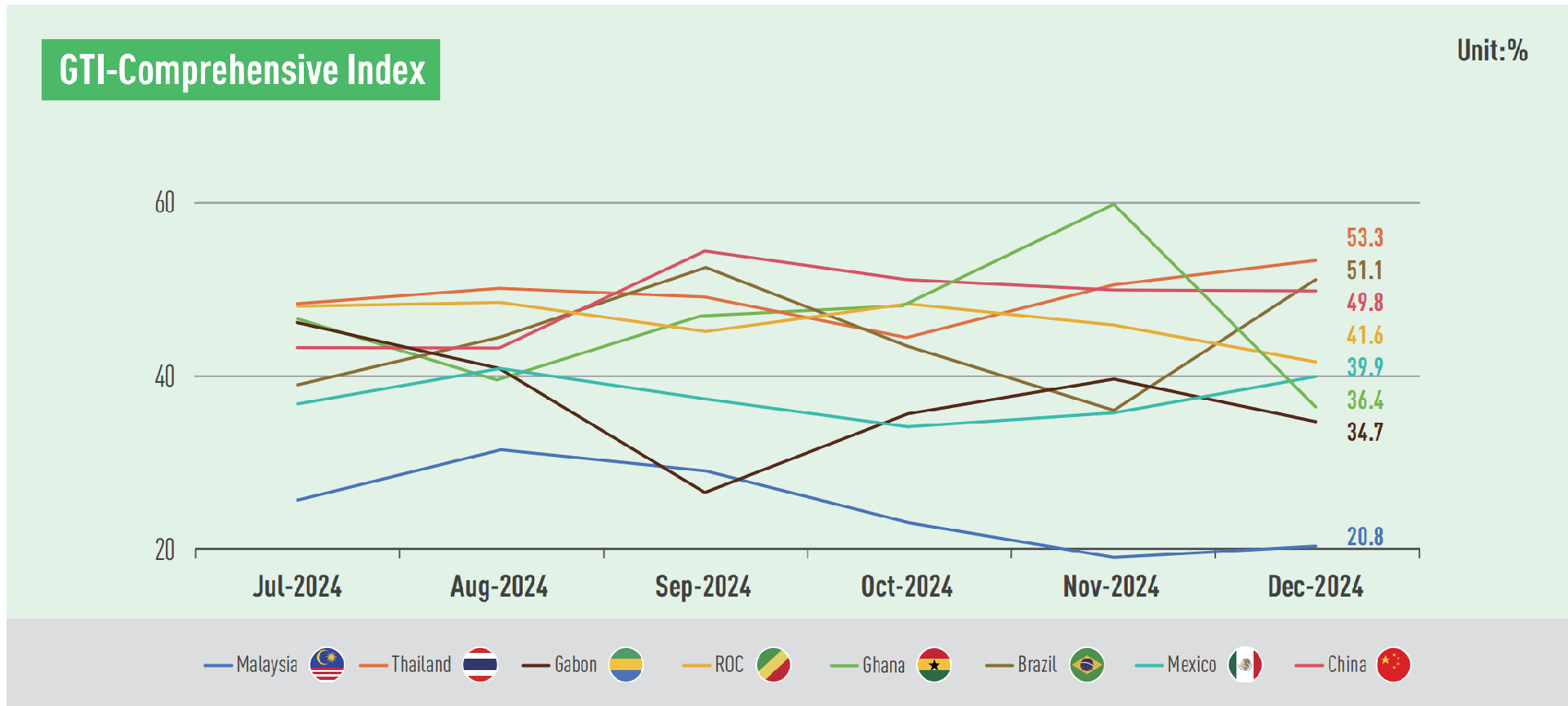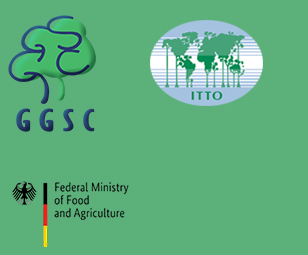

This month, the Global Timber Index (GTI) launched a new sub-index, the Market Expectation Index, which tracks and monitors the confidence levels of leading timber enterprises in GTI pilot countries regarding the trends of their countries’ timber and wooden products markets over the next six months. With this addition, the GTI now encompasses 12 sub-indices, providing a more comprehensive reflection of the production and business trends of the timber sectors in pilot countries.
GTIs for Thailand (53.3%) and Brazil (51.1%) were above the critical value of 50% in December, thus indicating an upward trend in their timber sectors. However, GTIs for China (49.8%), Republic of the Congo (41.6%), Mexico (39.9%), Ghana (36.4%), Gabon (34.7%), and Malaysia (20.3%) were below the critical value, suggesting the global timber market remained sluggish with significant downside risks.
This month, the volume of harvesting declined in all GTI-producing countries, particularly in Malaysia, Brazil, Gabon, and Mexico. Moreover, the declines in the four countries had persisted for several months, signaling a significant reduction in the supply of logs from these countries. The declines could be attributed to several factors, including lackluster demand (particularly in markets such as Europe and China), a slowdown in renovation activities during holiday periods, etc.
Encouragingly, some timber markets were showing positive signs. For example, domestic market demand in Thailand grew significantly compared to the previous month; for Brazil and China, the volume of export orders increased; and for Mexico, the export market ended months of contraction.
The GTI reports on significant indications of progress towards sustainable forest management in the pilot countries. In December, for example, Indonesian Ministry of Environment and Forestry launched the Legality and Sustainability Verification System (SVLK) Plus with enhanced traceability features, so as to ensure that every exported wood product can be traced to its origin. Also, Malaysia achieved its goal of planting 100 million trees between 2021 and 2025, well ahead of schedule. To date, Malaysia has recorded a forest cover of 18 million hectares, or 54.58 percent of the country's total land area. Recently, Gabon and EU officially launched a technical assistance programme for the sustainable management of Gabonese forests. The first goal of the programme is to revise Gabon's forest laws to meet international standards while adapting to national realities, therefore ensuring sustainable and fair exploitation of forest resources. In addition, it seeks to ensure the sector's compliance with the European Union Deforestation Regulation (EUDR).

| E-mail:ggsc@itto-ggsc.org | Tel:86-10-62888626 |


Sigh Up for Emails |
|